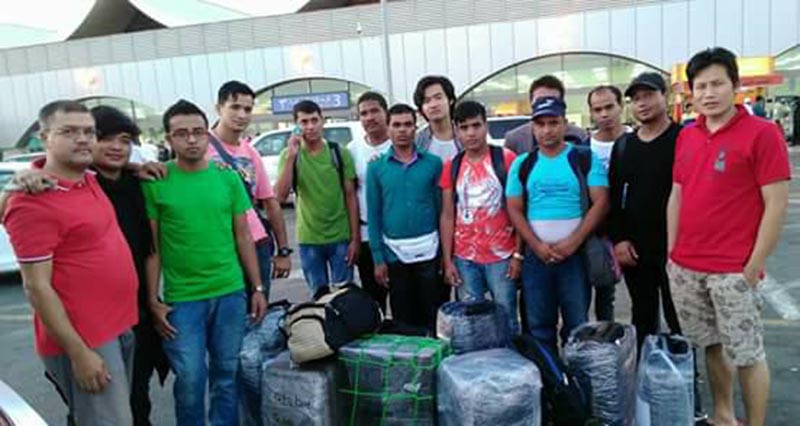Saudi, Oman decision to hit Nepali workers
Kathmandu, February 2
The recent decision of two Gulf states — Saudi Arabia and Oman — to ban foreigners from certain jobs is likely to hit Nepali migrants seeking overseas job opportunities in the two nations.
On Tuesday, Saudi Arabia — one of the major workplace destinations for Nepali migrant workers — announced that from early September, it is imposing a restriction on expatriates from working in 12 sectors.
Similarly, Oman also issued a six-month ban on the same day on the issuance of work visas for foreigners in 10 sectors.
Cause for concern
- Saudi Arabia and Oman have banned expats from working in 12 and 10 sectors, respectively
- While Oman has already enforced the decision, Saudi’s decision comes into effect from September
The Saudi Arabian and Omani government’s decision, though intended to curb the increasing unemployment rate in these countries by prioritising job opportunities for their own citizens, will adversely affect Nepali migrant workers planning to migrate to the two nations for jobs.
Saudi Arabia plans to ban expats in watch shops, optical stores, medical equipment stores, electrical and electronics shops, outlets selling car spare parts, building material shops, outlets selling all types of carpets, automobile and mobile shops, shops selling home furniture and ready-made office materials, sales outlets of readymade garments, children’s clothes and men’s supplies, household utensils shops and pastry shops.
Similarly, Omani government has temporarily restricted the issuance of work visa in information systems, sales, marketing, administration, human resources, insurance, media, airports, engineering and technical professions.
Officials of foreign employment agencies in the country have said that the decision will especially hit Nepali migrants planning to work in Saudi Arabia as the Gulf nation is one of the most preferred labour destinations of Nepalis.
“While Saudi Arabia is among the forerunners in terms of absorbing Nepali migrants, Oman is gradually becoming popular,” said Rohan Gurung, president of Nepal Association of Foreign Employment Agencies, adding that the recent decision of the Saudi Arabian government will further reduce labour demand from Nepal to the country at a time when the labour demand to the nation had already come down following the diplomatic rift between Saudi Arabia-led alliance and Qatar.
As per statistics maintained by the Department of Foreign Employment, the number of migrant workers taking work permit for Saudi Arabia has declined by 21,201 to 43,566 in the first six months of this fiscal compared to the same period of the previous fiscal.
It is estimated that almost 10,000 Nepali migrants travel to Oman every year in search of jobs.
As per Gurung, the government should now seek alternative labour destinations for Nepali migrants as internal conflict in the Gulf nation is unlikely to end anytime soon.
Meanwhile, Nepali migrants seem more attracted towards Malaysia in recent months.
As per government statistics, a total of 39,342 Nepali migrant workers had taken work permit for Malaysia in the first six months of 2016-17, while 58,659 migrant Nepalis obtained work permit for the destination in the same period this year.
Meanwhile, Mohan Adhikari, information officer at DoFE, said though the ban on employing expatriates in Saudi Arabia and Oman would l hit Nepali migrant labourers, nothing could be done as it was the decision of the governments in the respective countries.






